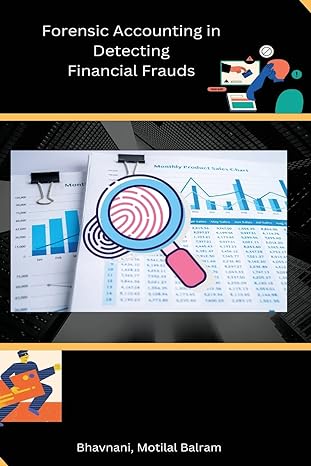Question
Accounting Information Technology: Transforming Financial Reporting and Management As businesses continue to adapt and evolve in the digital age, the integration of information technology into
Accounting Information Technology: Transforming Financial Reporting and Management
As businesses continue to adapt and evolve in the digital age, the integration of information technology into accounting practices has become essential for efficient financial reporting, data analysis, and management decision-making. In this context, let's explore various aspects of accounting information technology:
A. Accounting Information Systems (AIS):
Define Accounting Information Systems (AIS) and explain their role in modern accounting. How do AIS components such as data input, processing, storage, and output contribute to financial reporting and decision support?
Discuss the significance of data security and integrity in AIS. What measures and controls should be in place to protect financial information from breaches and errors?
B. Cloud Accounting Software: 3. Describe the advantages and challenges of using cloud-based accounting software, such as QuickBooks Online or Xero, for small and medium-sized businesses. How does cloud technology improve accessibility, collaboration, and data backup?
Analyze the impact of the shift from on-premises accounting software to Software as a Service (SaaS) solutions on the accounting profession, including potential cost savings and efficiency gains.
C. Big Data and Analytics: 5. Explore the concept of 'big data' and its relevance to accounting. How can accounting professionals leverage big data and analytics tools to gain insights into financial trends, customer behavior, and cost optimization?
Discuss the ethical considerations surrounding the use of big data in financial analysis, particularly in terms of data privacy and the responsible use of customer information.
D. Blockchain Technology: 7. Explain how blockchain technology works and its potential to revolutionize accounting and financial transactions. Discuss the benefits of blockchain in enhancing transparency, reducing fraud, and streamlining audit processes.
Step by Step Solution
There are 3 Steps involved in it
Step: 1

Get Instant Access to Expert-Tailored Solutions
See step-by-step solutions with expert insights and AI powered tools for academic success
Step: 2

Step: 3

Ace Your Homework with AI
Get the answers you need in no time with our AI-driven, step-by-step assistance
Get Started


